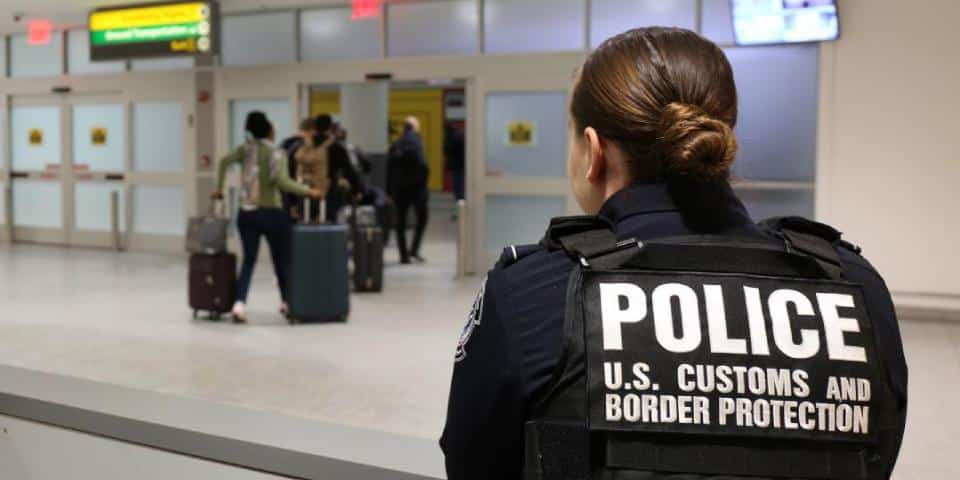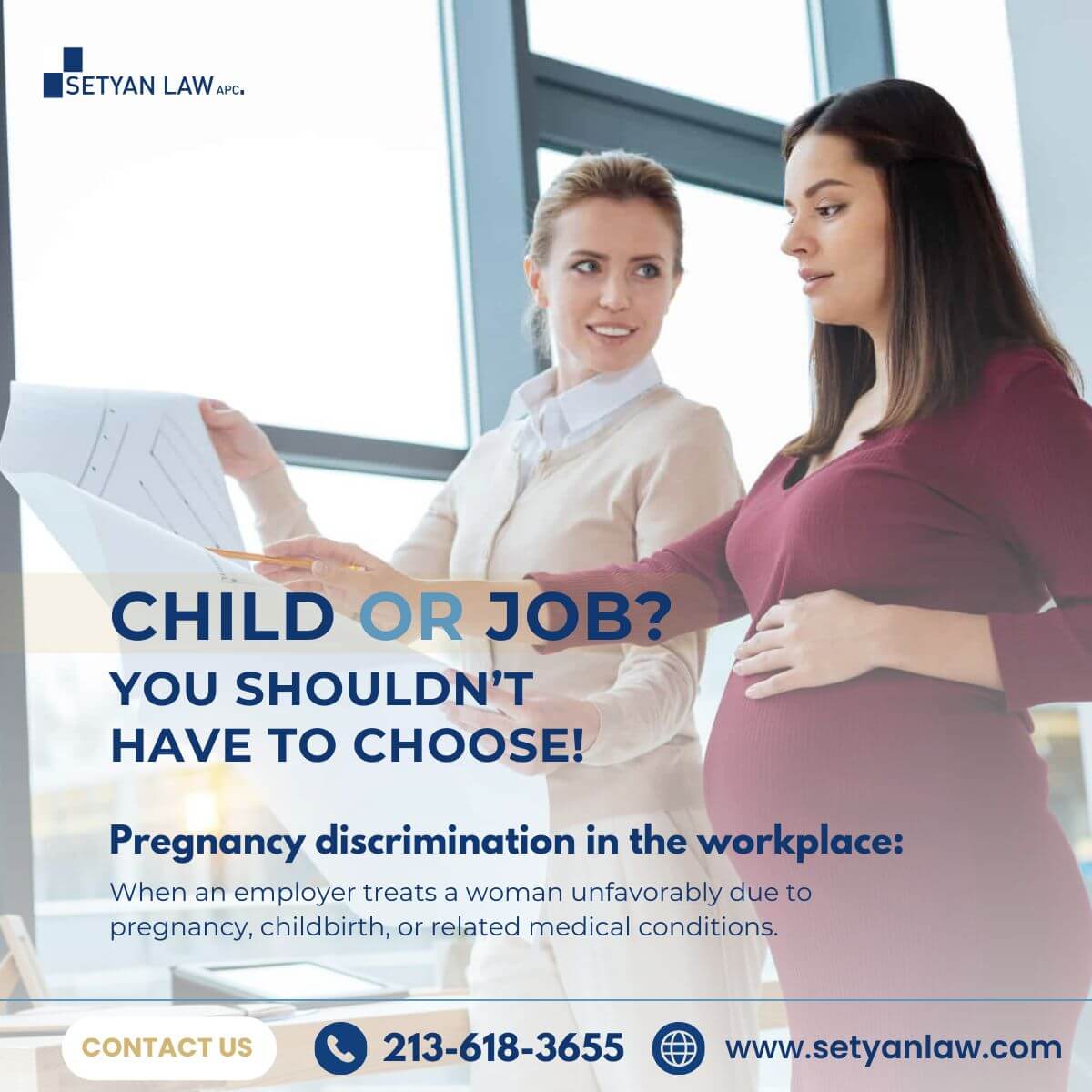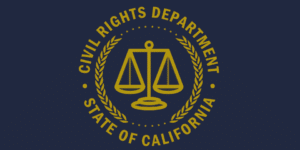Updated September 8, 2024
Landmark Pregnancy Discrimination Class Action Settled for $45 Million
In a landmark victory for workplace equality, the United States Customs and Border Protection (CBP) agency has agreed to pay a staggering $45 million to settle a class-action lawsuit alleging widespread pregnancy discrimination against its officers and agricultural specialists. This settlement, hailed as a significant step towards fostering a more inclusive and equitable work environment, comes after years of legal battles and courageous testimonies from affected employees.
US Border Agency Faces Reckoning over Pregnancy Discrimination Allegations
The case, which was initially filed with the U.S. Equal Employment Opportunity Commission (EEOC) in 2016, alleged that CBP had a systemic practice of placing pregnant employees on “light duty” assignments, effectively sidelining them from their regular duties and denying them opportunities for overtime, higher pay, and career advancement. This policy, which the agency had claimed was not an official standard, was found to have had a detrimental impact on the livelihoods and professional trajectories of nearly 1,100 women employed by CBP.
Widespread Discriminatory Practices Uncovered
The complaint painted a grim picture of the experiences faced by pregnant CBP officers and agricultural specialists. Many reported that the announcement of their pregnancy was met with an assumption that they could no longer effectively perform their jobs, leading to their immediate reassignment to light duty roles. This not only resulted in a significant reduction in their income and benefits but also forced them to relinquish their firearms and, in some cases, undergo requalification before they could resume their regular duties.
Roberta Gabaldon’s Tearful Testimony
Roberta Gabaldon, the lead plaintiff in the case, eloquently articulated the emotional toll of this discriminatory treatment. In a video call, she recounted how her joyful announcement of her pregnancy to her colleagues was quickly overshadowed by her boss’s directive to go home, relegating her to a cashier position despite her degree in agricultural biology. “Announcing my pregnancy to my colleagues and supervisor should have been a happy occasion — but it quickly became clear that such news was not welcome,” Gabaldon lamented.
Landmark Settlement Paves the Way for Systemic Change
The $45 million settlement, which is still pending final approval by a judge, marks a significant victory not only for the women involved in the class action but also for the future of CBP’s workforce. The agreement includes a comprehensive set of reforms aimed at addressing the discriminatory practices that had plagued the agency for years.
Presumption of Capability for Pregnant Employees
One of the key changes stipulated in the settlement is the establishment of a presumption that pregnant CBP employees can continue to perform their duties, with reasonable accommodations provided as needed. This represents a fundamental shift from the agency’s previous paternalistic approach, which had often assumed the inability of pregnant women to carry out their responsibilities effectively.
Comprehensive Training and Policy Reforms
The settlement also mandates comprehensive training for all CBP managers and supervisors on the rights of pregnant law enforcement officers and agricultural specialists. Additionally, the agency has agreed to develop new policies that explicitly recognize the capabilities of pregnant employees and outline clear protocols for providing appropriate accommodations.
Enforcement and Oversight Mechanisms
To ensure the sustainability of these reforms, the settlement agreement includes a three-year period of enforcement, during which the plaintiffs’ legal team can return to the EEOC if they receive reports of ongoing issues. This oversight mechanism is crucial in safeguarding the rights of CBP’s pregnant employees and ensuring that the lessons learned from this landmark case are effectively implemented across the agency.
Broader Implications for Federal Workplaces
The CBP pregnancy discrimination settlement has far-reaching implications that extend beyond the agency’s own workforce. It serves as a powerful reminder of the critical need for federal agencies to prioritize workplace equity and address systemic biases that can hinder the careers of women, particularly during the vulnerable period of pregnancy.
Challenging the “Paternalistic View” of Pregnancy
As noted by Joseph Sellers, one of the attorneys representing the plaintiffs, the discriminatory practices uncovered in the CBP case were likely rooted in a “paternalistic view about pregnancy,” where supervisors doubted the abilities of pregnant employees or feared for the safety of their unborn children. This mindset, which is all too common in many workplaces, must be actively challenged and dismantled through comprehensive training and a cultural shift that recognizes the inherent capabilities of pregnant individuals.
Empowering Employees to Speak Up
The settlement also addresses the pervasive fear of retaliation that often deters employees from voicing concerns about unfair practices in federal workplaces. The explicit order prohibiting retaliation against witnesses and class members sends a clear message that such intimidation will not be tolerated, paving the way for a more transparent and accountable work environment.
Transforming CBP’s Culture and Beyond
The $45 million settlement represents a watershed moment in the fight against pregnancy discrimination, not only for the women of CBP but for the broader federal workforce. By addressing the deep-seated biases and systemic barriers that have long plagued the agency, this landmark case has the potential to catalyze a fundamental transformation in the way pregnancy is viewed and accommodated in the workplace.
Empowering Future Generations of CBP Employees
As Roberta Gabaldon eloquently stated, the changes flowing from this settlement will ensure that “future women who come into this agency won’t have to be afraid anymore, hopefully, of getting pregnant or retaliation.” This shift in mindset and policy will empower a new generation of CBP employees to embrace the joys of motherhood without fear of professional consequences, fostering a more inclusive and supportive work environment.
Ripple Effects Across the Federal Government
The significance of this case extends far beyond the borders of CBP. As a prominent federal law enforcement agency, the agency’s resolution of this issue can serve as a model for other government organizations to follow, inspiring a wave of policy reforms and cultural shifts that prioritize the rights and well-being of pregnant employees across the federal workforce. This landmark settlement has the potential to catalyze a broader reckoning on workplace discrimination, ultimately creating a more equitable and inclusive future for all.
In conclusion, the $45 million settlement between the U.S. Customs and Border Protection and its pregnant employees represents a significant victory in the fight for workplace equality. By addressing the systemic discrimination that had long plagued the agency, this case has the power to transform the culture of CBP and inspire similar reforms across the federal government. As the dust settles on this landmark case, the path forward is clear: a future where pregnant employees are empowered, supported, and celebrated for their invaluable contributions to the workforce.
Call (213)-618-3655 for a consultation with our top-rated pregnancy discrimination lawyers.






